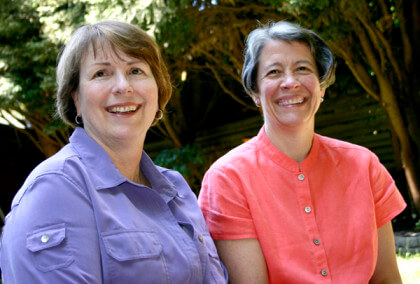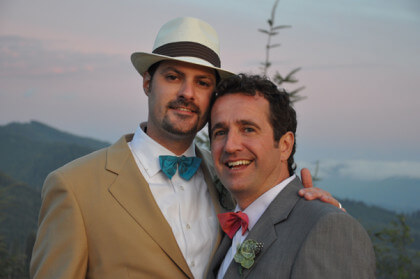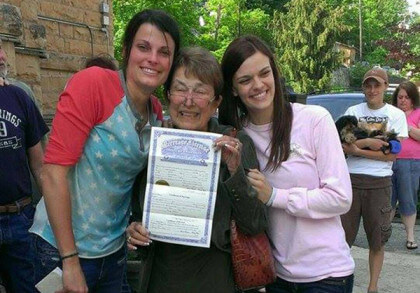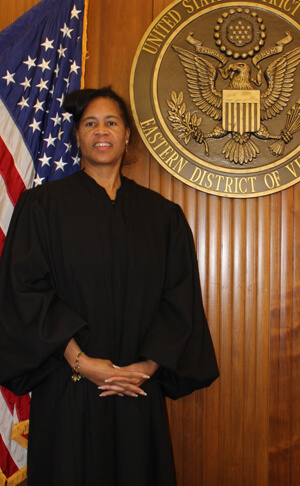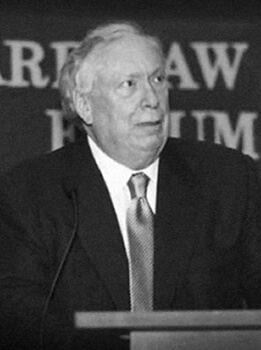Plaintiffs Deanna Geiger and Janine Nelson. | ALICIA J. ROSE WIKIMEDIA COMMONS
A federal judge in Portland has struck down Oregon’s ban on same-sex marriage in a ruling that will not be appealed by the state and Multnomah County –– the only parties with standing to do so.
District Court Judge Michael McShane, in a May 19 ruling, held that the 2004 voter initiative defining marriage as the union of one man and one woman violates the federal equal protection rights of same-sex couples.
Governor John Kitzhaber and Attorney General Ellen Rosenblum, both Democrats, declined to defend the marriage ban in the lawsuit heard by McShane, as did the other defendant in the case, Multnomah County, the home to Portland. No other party currently has standing to seek a stay of the judge’s ruling or to appeal it, and no other county in Oregon has made any effort to intervene in defense of the existing marriage law.
State and county defendants will not appeal four couples’ challenge to 2004 voter amendment
As a result, marriages are set to begin and this could effectively be the final step on the road to marriage equality in Oregon –– though that is not a certainty.
Last week, McShane rejected a motion from the National Organization for Marriage, a group opposed to equal marriage rights, to intervene in defense of Oregon’s ban. Hours before his May 19 ruling, the Ninth Circuit Court of Appeals denied NOM’s motion to stay his ruling pending its appeal of his refusal to allow it intervenor status. NOM has also suggested the judge, who is gay, should recuse himself.
Plaintiffs Ben West and Paul Rummel. | OREGON UNITED FOR MARRIAGE.ORG
McShane ruled in a consolidation of two lawsuits filed in late 2013. In October, Portland attorneys Lake Perriguey and Lea Ann Easton filed suit on behalf of two couples –– Deanna Geiger and Janine Nelson, who are seeking the right to marry in Oregon, and Robert Deuhmig and William Griesar, who married in British Columbia and are seeking state recognition of their marriage.
In December, the American Civil Liberties Union and its Oregon affiliate filed suit on behalf of Paul Rummell and Ben West, and of Lisa Chickadonz and Christine Tanner.
Prior to McShane’s ruling, Oregon had been gearing up for a ballot measure in November to overturn the 2004 marriage ban.
In reaching his conclusion that Oregon’s existing ban on same-sex marriage is unconstitutional, McShane found that the discrimination at issue was based not on gender –– the policy, he noted, treated men and women exactly the same –– but on sexual orientation. Since gender discrimination was not at issue, in McShane’s view, it was not clear that heightened scrutiny ––the level of judicial review applied in sex discrimination cases, which imposes a more demanding burden than usual on the state in justifying a policy under challenge –– should automatically be applied.
After analyzing the issues involved in determining the appropriate standard of review, he concluded the marriage ban “cannot withstand even the most relaxed level of scrutiny,” the standard most deferential to existing law. Arguments based on tradition, he found, provide no legitimate basis on which to discriminate, and the aims of protecting children and encouraging family stability bear no rational relationship to the policy of barring marriage by same-sex couples.
“No legitimate state purpose justifies the preclusion of gay and lesbian couples from civil marriage,” McShane concluded.
Plaintiffs Lisa Chickadonz and Christine Tanner. | OREGON UNITED FOR MARRIAGE.ORG
The judge placed no stay on his order, and officials in Portland and some other counties around the state had already announced they were prepared to begin issuing licenses immediately.
Still, in January, the Supreme Court stayed Utah’s marriage equality ruling to give the state time to mount an appeal, and each in the long string of favorable federal court rulings since then have also been stayed (except the one that sped up implementation of Illinois’ marriage equality law in Cook County) –– though in all those cases, the states were mounting appeals.
McShane, himself, was cautious in predicting what could happen next, writing, “My decision will not be the final word on this subject.” Though NOM’s motion for a stay in order to appeal the judge denying the group intervenor status was rejected by the Ninth Circuit, its appeal of the denial itself is still pending. That effort could conceivably put a snag in the ability of same-sex couples to wed.
Should McShane's decision prove the last word, equality advocates would be spared the considerable cost and effort –– not to mention uncertainty –– of mounting a ballot fight in November. Two weeks ago, the Oregon Family Council, an anti-gay group, announced it was suspending a rival campaign to enact a measure allowing businesses broad religious exemptions to decline providing goods and services to same-sex couples.
Earlier this year, Mike Marshall, the campaign manager for Oregon United Against Discrimination, which has been pushing the pro-marriage equality referendum, acknowledged, in an interview with Gay City News, that the competing effort by the Oregon Family Council would present gay advocates with a complicated public education challenge –– working to ensure passage of one measure while campaigning to defeat the other –– in advance of the November election.
Oregon United for Marriage, the coalition pressing for equal marriage rights there, hailed McShane’s ruling, saying it “pav[ed] the way for couples to begin marrying immediately.”
Basic Rights Oregon, the state’s LGBT advocacy group, appeared to claim final victory in an effort it thought might require a voter referendum later this year.
“After years of working in every way possible way to bring the freedom to marry to Oregon, today is a historic day,” the Basic Rights Education Fund’s board chair, Vanessa Usui, said in a release. “Starting with a ballot measure, and ultimately with this court victory, we have finally ensured that all loving, committed same-sex couples are free to marry in Oregon.”
In addition to holding open the possibility that his ruling could yet be subject to further action by higher courts, McShane also waxed philosophical about its longer term implications.
“Where will this all lead?,” he wrote, in the opinion’s final sentences. “I know that many suggest we are going down a slippery slope that will have no moral boundaries. To those who truly harbor such fears, I can only say this: Let us look less to the sky to see what might fall; rather, let us look to each other … and rise.
Arthur S. Leonard, a New York Law School professor, will examine the Oregon ruling in detail this evening at gaycitynews.com.

